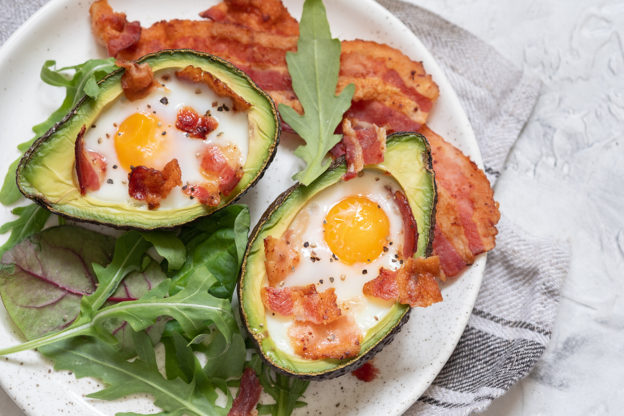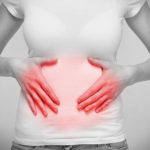By David Blyweiss, M.D., Advanced Natural Wellness
January 2, 2019
You’ve heard that a high-fat/low carb-diet is bad for you… that eating this way will make you fat and give you heart disease.
You’ve also heard that eating a high-carb/low-fat diet is bad for you… that it messes with your metabolism, encourages weight gain and leads to diabetes.
With mixed news like this, what the heck are you supposed to eat? (And seriously, when did eating a healthy diet get so complicated?)
Actually, it’s not nearly as difficult as you might think.
One of the first things I tell my patients is that your body needs both fat and carbohydrates to function properly.
About 60% of your brain is composed of fats. It needs fats to function properly and help you maintain cognitive function as you age. Certain fats can even help your brain work less hard while actually boosting your mental performance.
MD Exposes the Hidden Danger to Your Eyes

When your eyesight starts to fail, it's a real problem. Suddenly you can't go to the grocery store... you can't get to the doctor if you have an emergency... you can't meet your friends for dinner…
Your "regular" doctor doesn't have time to keep up with the latest research. And the same goes for eye doctors. They go to school to learn how to fit you for glasses and contacts, but have no way of preventing the damage and loss of eyesight that threatens your freedom and independence.
Let me show you something that explains a LOT about how your eyes work.
In my FREE Special Report, I'll show you a HUGE, untapped resource for your eyes that safely and naturally restores clear, effortless eyesight.
Click here to get started...
But your brain isn’t the only thing that needs healthy fats to thrive.
Your body poorly absorbs fat-soluble vitamins like A, D, E and K without fats. They are absolutely necessary for brain function, hormone production, energy levels and the health of your skin, bones and eyes.
And carbohydrates are your body’s main source of fuel for everything from running and jumping to sleeping and breathing.
So you don’t want to cut either of them out of your life. Instead, what you want to do is look at the quality of the fats and carbohydrates you’re eating.
Where are you getting Your Fats From?
If you’re loading up on feedlot beef, factory-farm pork and chicken, dairy products, commercial vegetable oils, fried foods, deli sandwiches and other less-than-healthy fats, it’s going to show up on your waistline quickly… and in your health eventually.
When you replace those unhealthy fats with ones that are good for you, they not only improve your health and brain function, but also encourage weight loss.
For example, a lot of patients tell me they avoid eating nuts because they think they’re fattening. But unless you’re gorging on nuts, it’s entirely unfounded. Nuts can actually help you maintain a healthy weight, and even encourage weight loss if you need to drop some pounds. They also cut your risk of heart disease, metabolic syndrome, diabetes and certain types of cancer.
Are You Suffering From...
- Love handles and a pot belly
- Romance that isn't what it used to
- Forgetfulness and inattention
- Low (or no) strength and endurance
- A sex drive that's shifted into neutral...or worse
If so...you may have Mature Male Burnout. Click here to discover more about this unique condition and what you can do about it.
I recommend sticking with tree nuts like pistachios, walnuts, almonds and hazelnuts. Cashews, pecans, macadamia and Brazil nuts are good choices, too. But stay away from peanuts, as they are not nuts and contain aflatoxin, a natural toxin produced by certain strains of mold.
Like nuts, people often think avocados will make them gain weight. However, eating foods high in monounsaturated fats, like avocados, actually prevents the distribution of fat to your belly.
And they’re great for your metabolism. Eating just half of an avocado each day can improve insulin response and lower your blood sugar. Additionally, enjoying avocado regularly can help reduce the number of small, dense LDL particles that can slip into the linings of your blood vessels and cause blockages.
Extra virgin olive oil (EVOO) is probably my favorite source of healthy fats. EVOO is chock-full of natural antioxidants called polyphenols. These compounds can change the expression of genes that influence your risk of heart disease and plaque build-up in the arteries. I mix olive oil with herbs and garlic; sautee them together and use as the base for seasoning cooked veggies. EVOO with lemon juice is my go to dressing for salads.
And let’s not forget about the all-important omega-3 fatty acids found in fish. These fats lower inflammation, reduce blood pressure and slow the build up of plaque in your arteries. They drastically cut your chances of a heart attack or sudden cardiac death. Omega-3s also slash your risk of dementia and Alzheimer’s disease.
However, avoid farm-raised and deep sea, top-of-the-food-chain, predatory fish. Your best health benefits will come from smaller, wild-caught fish like mackerel, salmon, herring, sardines and trout.
And what about carbs?
Tune in to the January 7th issue of Advanced Natural Wellness to find out exactly why some carbs can be deadly… and others help you thrive.
SOURCES:
Paniagua JA, et al. Monounsaturated fat-rich diet prevents central body fat distribution and decreases postprandial adiponectin expression induced by a carbohydrate-rich diet in insulin-resistant subjects. Diabetes Care. 2007 Jul;30(7):1717-23.
Jackson CL, et al. Long-term associations of nut consumption with body weight and obesity. Am J Clin Nutr. 2014 Jul;100 Suppl 1:408S-11S
Afshin A, et al. Consumption of nuts and legumes and risk of incident ischemic heart disease, stroke, and diabetes: a systematic review and meta-analysis. Am J Clin Nutr. 2014 Jul;100(1):278-88.
Luo C, et al. Nut consumption and risk of type 2 diabetes, cardiovascular disease, and all-cause mortality: a systematic review and meta-analysis. Am J Clin Nutr. 2014 Jul;100(1):256-69.
Wien M, et al. A randomized 3×3 crossover study to evaluate the effect of Hass avocado intake on post-ingestive satiety, glucose and insulin levels, and subsequent energy intake in overweight adults. Nutr J. 2013 Nov 27;12:155.
Li Wang, et al. Effect of a Moderate Fat Diet With and Without Avocados on Lipoprotein Particle Number, Size and Subclasses in Overweight and Obese Adults: A Randomized, Controlled Trial. J Am Heart Assoc. 2015;4:e001355
Antonio Camargo, et al. Gene expression changes in mononuclear cells from patients with metabolic syndrome after acute intake of phenol-rich virgin olive oil. BMC Genomics, 2010.
Saremi A, et al. The utility of omega-3 fatty acids in cardiovascular disease. Am J Ther. 2009 Sep-Oct;16(5):421-36.
Huang TL, et al. Benefits of fatty fish on dementia risk are stronger for those without APOE epsilon4. Neurology. 2005 Nov 8;65(9):1409-14.







